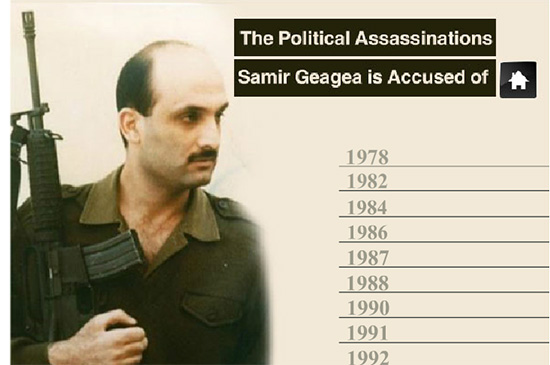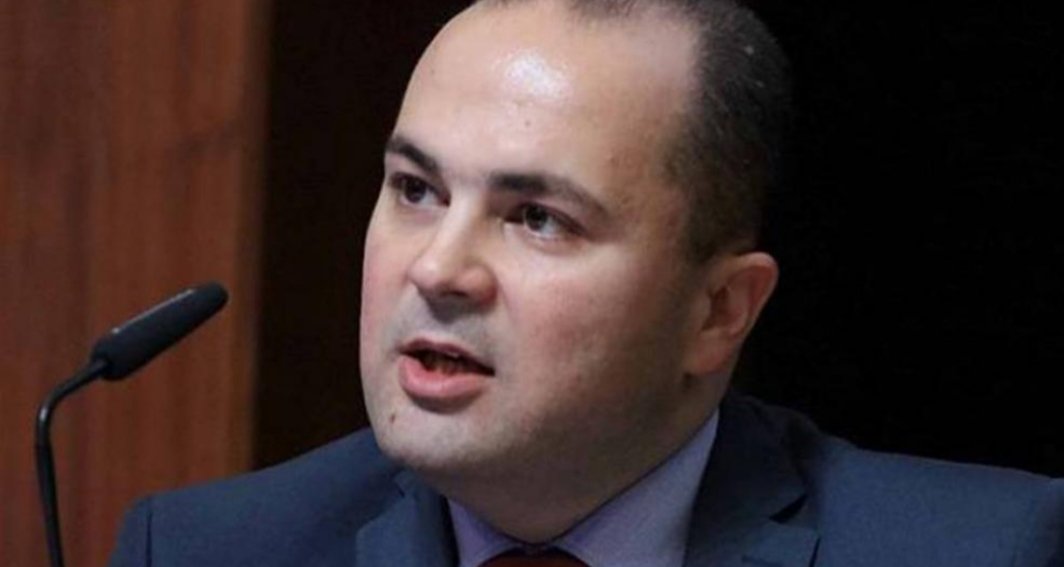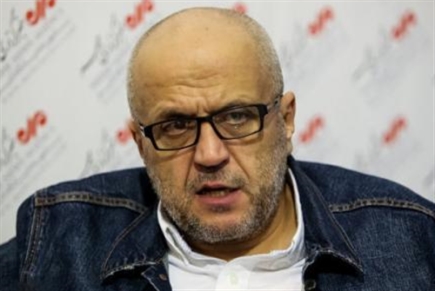
Lead investigative Judge Tarek Bitar refuses to prosecute his judiciary colleagues who signed to unload, store, then ignore the ammonium nitrates that devastated Beirut last August.

The Lebanese are split on the performance of Judge Tarek al-Bitar, the lead judicial investigator in the massive 4 August Port of Beirut explosion last year.
One side blindly trusts the man, believing Bitar will spearhead the fight against Lebanon’s existing corrupt political class and discover the identities of those responsible for the deadly port blast.
The other side views him as a foreign tool used to create sedition in Lebanon by targeting political figures critical of the US. The Lebanese resistance, Hezbollah, was the first to draw suspicion to Bitar’s performance, whose arbitrary and biased allegations seemed to target only one side of the political divide.
Hezbollah’s charges have gradually escalated over the months. When Bitar first took on the blast investigation – the second judge to do so – Hezbollah Secretary General Hassan Nasrallah urged him to publish the blast site’s technical report so it would quash unsubstantiated rumors about the group’s role in the explosion, or allegations that it stored ‘weapons’ at the Port of Beirut.
Bitar did not respond to Nasrallah’s request for transparency, however, and allowed political and media disinformation to go unchecked during a national crisis.
In one example of this, an alleged ‘witness’ named Imad Kashli appeared in a Lebanese media outlet claiming that he transported ammonium nitrate for Hezbollah from the Port of Beirut to a village in the south, in what was later discovered to be false testimony. Bitar failed to take any action against Kashli under the pretext that he was ‘sick,’ and media outlets never bothered to refute or retract the fabricated story.
Furthermore, Bitar’s political targets say the judge’s own allegations are not comprehensive, but deliberately selective. His interrogation roster focuses overwhelmingly on personalities belonging to one political affiliation, while unjustifiably excluding officials in the very same posts with opposite political views. Bitar has interrogated former Lebanese Armed Forces (LAF) Commander Jean Kawahji, for instance, while skipping over current LAF Commander Joseph Aoun, a Washington-favored army man.

Aoun cannot be bypassed or absolved of responsibility. The explosion happened on his watch, during his tenure. Bitar’s detractors rightly point out that the ultimate responsibility for the Beirut blast must focus on the Lebanese judiciary and the military. The former signed the papers that allowed in and continued to store tons of illegally-stored ammonium nitrate in Beirut, and the latter has the final word on any explosives inside Lebanon’s legal boundaries.
The fact that Bitar has ruled out questioning the current army leadership, most of the judges, the Ministers of Justice and Defense, and the Justice Ministry’s cases commission from has raised eyebrows, obviously. Nasrallah did not mince his words when he stated, in a recent speech, that the greatest responsibility for the 2020 calamity rests with the judges who gave permission to unload vast amounts of ammonium nitrate explosives from a foreign ship seized by Lebanese authorities, and then gave permission to store these substances in dangerous conditions inside the Port of Beirut.
Bitar’s choices lead to armed confrontations
Leaked reports in the media and from within the corridors of Lebanon’s Judiciary, instead deflected blame onto cabinet ministers and members of parliament (MPs), revealing that they would be arrested even before Bitar issued the summons. Furthermore, he has been quoted as saying that he wanted to fight, not avenge, the political class, which he did not deny in a press interview – thus, confirming the words attributed to him.
His behavior and the investigation’s bias has only reinforced suspicions against Bitar, who was expected, at the very least, to handle these processes and suspects impartially, and to display good faith by muzzling rumors and disinformation.
The judge’s questionable performance finally prompted supporters of Hezbollah, Marada, the Amal Movement, and members of professional organizations (lawyers, etc) to hold a protest in front of the Beirut Palace of Justice.
On 14 October, a peaceful demonstration by these groups was ambushed in Beirut’s Tayouneh neighborhood by far-right Lebanese Forces (LF) party gunmen. Rooftop sniper fire quickly escalated into an armed clash that killed seven Hezbollah and Amal supporters and injured dozens of others.

The attack could have easily spiraled into a civil war had it not been for Nasrallah’s public calls for restraint, which gave space for an investigation by army intelligence, under the supervision of the judiciary, that this week summoned LF leader Samir Geagea for interrogation. That case continues.
Judiciary and military responsibility for the explosives
Why has Bitar overlooked the judicial and military responsibilities for the ammonium nitrates and its storage at the port for seven years? Why does he persist in focusing his investigation on cabinet ministers and parliamentarians mainly, despite the fact that the explosion was primarily a security and judicial failure?
If the army had carried out its function, entrusted exclusively to Lebanon’s military under the country’s Weapons and Ammunition Law, by supervising the nitrate storage, destruction, or re-export, the devastating explosion would have been averted.
Similarly, if judges had done their job, a legally binding – not a political one – decision would have ensured the destruction or immediate exportation of the explosive materials from Warehouse 12 in the Port of Beirut.
Despite the negligence of his judicial colleagues, Judge Bitar has been noticeably timid about addressing their liabilities in the lead-up to the explosion. The politicization of his investigation has all but buried the legal distribution of responsibility – the truth, so to speak – for the blast.
The judges who escaped Bitar’s ‘judgement’

To this day, the ‘guardians of justice’ continue to remain unaccountable. But the names of seven judges and a state attorney suspected of negligence have been identified as those most liable for the judiciary’s failings: Judges Jad Maalouf and Carla Shawah from the Beirut Urgent Matters Court, Ministry of Justice Judges Marwan Karkabi and Helena Iskandar, head of the Beirut Executive Department Mirna Kallab, government commissioner at the Military Court Judge Peter Germanos, Appeals Court Attorney General Ghassan Khoury, and state attorney Omar Tarabah.
Lebanon’s Internal Security Forces (ISF) had identified these judges in a report presented to Judge Bitar at the start of his investigation.
The judiciary’s responsibility in the blast has also been lost amid blanket local media focus on Lebanon’s political class since 17 October 2019, when a street ‘revolution’ arose in response to the country’s economic collapse. The prevailing trend in the country has been to lay all blame on the politicians and bankers who let this happen.
So there would be little fallout for Bitar if he took the easy path, focused on the easy ‘villains,’ and didn’t rock the boat with his judicial colleagues or Lebanon’s ‘neutral’ military establishment.
Bitar checked some boxes, but basically played softball with the judiciary. As an example, he formally requested that the Cassation Court’s public prosecutor separately verify the negligence of Beirut Judges Maalouf and Shawah in order to charge them with the crime of probable intent, like the rest of the defendants in the case.
Although more than a year has passed since the blast investigation began, any action against the judges, or even checking their files or hearing their statements, has been delayed for months, although the role of one of them – Jad Maalouf – is critical.
Maalouf signed off on the decision to unload the ship’s ammonium nitrate cargo and appoint a judicial guard as the head of the port, Mohammad al-Mawla. After Mawla claimed that he did not hold the keys to the warehouse, Maalouf was supposed to appoint another judicial guard and establish a time period for guard duty, which did not happen. Bitar listened to the statements of Maalouf and Shawah as witnesses only, unlike others who he intends to prosecute. Why?
The file of the ammonium nitrate shipment had swung back and forth for years between the General Customs Directorate and Beirut Urgent Matters Judge Maalouf. Several letters were sent to the Director General of Customs Badri Daher to re-export the goods, but Judge Maalouf kept writing down the request and sending it to the Justice Ministry’s cases commission, which responded only once by approving the re-export.
Maalouf was assigned to transfer the ownership of the goods within a week, even though Article 13 of the UN’s Hamburg Convention permits the destruction of goods – and if they are hazardous, without transferring their ownership – without paying compensation to the owner. The Hamburg Convention, signed in 1978 and enforced in November 1992, is the UN’s ‘Hamburg Rules’ on cargo sea shipments that unified a legal system regulating the rights and obligations of shippers, carriers, and consignees under the contract of transport of goods by sea.
According to legal experts, Judge Maalouf should have ruled to destroy these highly dangerous materials based on both Article 13 of the Hamburg Convention as well as the provisions of paragraph 2 of Article 579 of the Lebanese Code of Civil Procedure; that is, without a request from anyone and regardless of the rights of their owners, who are not entitled to compensation for the destruction of hazardous goods.
Instead, four years were spent on issuing notifications, or requesting discussions on jurisdiction and the legality of selling or destroying the goods. If Judge Maalouf had taken the decision to destroy the ammonium nitrates immediately, Lebanon would have certainly avoided its destructive consequence last August.
The same reasoning applies to suspected Judge Shawah, who was referred to the prosecution with Maalouf, but judicial sources tell The Cradle that she has not received any document or review from anyone since she took over the ammonium nitrates case from Maalouf.
Judge Bitar has also asked the Appeals Court public prosecutor to verify the suspected negligence of Public Prosecutor Judge Khoury for authorizing the closing of the nitrates file. But Bitar did not do that for months, and until the day before, he believed that the Court of Cassation might recuse him based on the lawsuits submitted by the defendants and ministers accusing him of bias.
It appears that Bitar initially suspected Khoury of involvement in criminal activities that contributed to the death and injury of people and causing damage to public property as a result of the judge’s decision to shelve the State Security’s investigation report. Then, inexplicably, Judge Imad Qabalan, the Court of Cassation’s public prosecutor, decided those suspicions were unjustified and threw out Bitar’s inquiries by saying he considered “the report of the judicial investigator [Bitar] dated 24 September 2021 to be empty of any suspicions and does not prove fault in the job duties of Judge Khoury.”
The fourth and fifth judges, Helena Iskandar and Marwan Karkabi, who headed the Justice Ministry’s cases commission, are suspected of years of procrastinating before responding to the correspondence of the Director General of Customs and the Urgent Matters Judge. Although they received several letters, they responded only once by proposing to re-export the nitrates without following up on the case, which is one reason the ammonium nitrates remained in the heart of Beirut.
The sixth judge, Peter Germanos, was contacted by State Security investigators – when he was the government representative at the military court regarding the ammonium nitrate stores – to notify him about the high risk of these materials. But Germanos told them this case was not in the jurisdiction of the military prosecution because the Urgent Matters Judge had ruled to remove that material from Warehouse 12.
Although the issue is related to the Lebanese state’s national security and clearly falls within the jurisdiction of the Army Intelligence, Germanos decided that it is not within the powers of the Military Public Prosecution. Why?
Judge Germanos has denied on Twitter that he received any reports or minutes on the ammonium nitrates from the State Security or any other agency. Here, Bitar’s investigation needs to discover which side is telling the truth, bearing in mind that most communications between the judicial police and public prosecutor were conducted orally, over the phone, until written investigation minutes are stamped and referred to the Public Prosecution.
The seventh judge – Mirna Kallab, head of the Executive Department in Beirut – following correspondence from the Justice Ministry’s cases commission on the sale of the nitrates, was tasked specifically with appointing an inspections expert. A dispute emerged from the start between the Ministry of Works and the cases commission over who should pay the expert’s fees, which did not exceed 700,000 (approximately $467) Lebanese pounds.
Here, state attorney Omar Tarabah’s name appears for procrastinating for more than a year over correspondence related to paying the expert’s fees to inspect the Rhusos, the ship which transported the ammonium nitrate to the Port of Beirut.
In a nutshell, it is believed that the reason for Bitar’s leniency in holding negligent judges accountable for the Beirut blast is due to the prevailing conviction among judges of the need to protect and provide their colleagues with immunity, lest they next become scapegoats for the political class who would also wish to protect their colleagues with immunity.
Bitar should have refused to cater to the judiciary and military establishments, and made a beeline for whomever he suspected of negligence, regardless of their affiliations. Having failed to do so, this investigation is now a bust. Unless Bitar changes course and takes on these two protected institutions, only scapegoats will be charged for Lebanon’s deadliest explosion in history.
Filed under: Double standards, Lebanon, Lebanon Islamic Resistance - Hezbollah, Lebanon's army | Tagged: Beirutshima, Civil War, Corruption in the Lebanon's judicial system, Forensic investigator Tarek Al-Bitar, Geagea Crimes, Leb (ISF), Sayyed Hassan Nasrallah, Tayouneh massacre | Comments Off on Judges protecting judges: why the Beirut blast investigation is a dud









